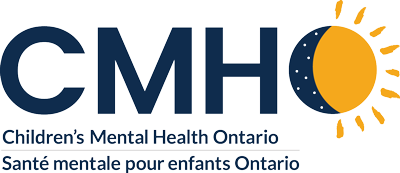Toronto, December 14, 2023 – Community mental health and addictions organizations are expressing concern over the alcohol retail sales expansion, noting that the announcement will contribute to an increase in public health harms.
The concerns come as the Ontario government has announced increased access to alcohol by allowing sales in corner stores, gas stations, and grocery stores, as well as ending the restrictions on 12 and 24 case sales at the Beer Store.
The sector recognizes that as part of the expansion plan, the government has committed $10 million over five years to social responsibility and public health measures. The government has also pledged to continue consulting with public health organizations on this issue.
While the government’s acknowledgement of public health measures in the expansion announcement is important, the community mental health and addictions sector is urging caution in the rollout of the expansion. Alcohol is a leading cause of preventable deaths, injuries, violence and illnesses. According to Public Health Ontario, there are more than 4,000 deaths, 22,000 hospitalizations and close to 195,000 emergency department visits due to alcohol in the province every year.
Increasing the number of alcohol outlets has been shown to increase negative health outcomes including violence, injuries, alcohol-related crashes, and death by suicide. Despite this growing evidence, the government of Ontario has already significantly increased access to alcohol, through increases in locations of availability, extended hours, and changes to rules for restaurants and bars.
“This is a healthcare issue,” said Camille Quenneville, CEO, Canadian Mental Health Association, Ontario. “Increasing availability to alcohol is in direct contradiction to a public health approach to substance use. Without clearly outlined goals, strategies and sufficient funding to reduce alcohol-related harms, this retail expansion will put additional strain on an already overloaded community mental health and addictions system. We look forward to consulting with government on this issue.”
The relationship of alcohol to mental health and well-being is well documented. Alcohol dependence has been associated with clinical depression, and individuals with co-occurring mental illness and alcohol use problems have an increased risk of suicide attempts. Alcohol misuse and alcohol disorders have a significant impact on families and children, including increased violence at home, increased fetal alcohol spectrum disorder and increased childhood trauma.
“Drinking is a leading cause of death in young people,” said Tatum Wilson, CEO, Children’s Mental Health Ontario. “We welcome the significant investments the government has made in child and youth mental health, but any path forward on expansion of access to alcohol must also include significant investments in harm reduction measures, education, and mitigating strategies to prevent the health risks to children, youth and families associated with alcohol use, as well as dedicated investments in treatment and supports.”
“The province’s decision to increase access to alcohol, needs to come with an increase to crucial community mental health and addictions supports,” says Alisha Tharani, CEO, Addictions and Mental Health Ontario. “Policy changes like this need to be handled with great care, weighing the interests of vulnerable Ontarians who may be disproportionately harmed as a result. It is critical that community supports, including harm reduction services, are fully funded so that individuals can seek the best option for reducing use.”
The community mental health and addictions sector looks forward to collaborating with the government on the implementation and development of a comprehensive alcohol strategy, to ensure that the approach prioritizes public health and harm reduction and minimizes the negative impact to those most at risk.
Collectively, our three organizations stand behind CMHA Ontario’s four concrete actions to reduce risk of alcohol-related harms:
- Cease alcohol retail expansion in Ontario and implement health-based regulatory controls
- Strengthen controls on advertising and marketing of alcohol to prevent youth exposure
- Prioritize access to a range of treatment options
- Create and implement a comprehensive alcohol strategy for Ontario
These concrete actions are outlined in detail on the CMHA Ontario website.
Fast Facts:
- Alcohol is the most consumed substance in Canada, and it causes more harms than other regulated substances.
- In Ontario alone, healthcare costs associated with alcohol increased 35 per cent over a decade, from $1.73 billion in 2010 to $2.3 billion in 2020.
- In comparison to all other substances, including tobacco, alcohol is the most burdensome substance and cost Ontario $7.11 billion in 2020 due to lost productivity, healthcare, criminal justice and other direct costs.
- The 2023 Canadian Alcohol Policy Evaluation (CAPE) report card for Ontario scored a failing grade of 40 per cent, down from 55 per cent in 2019.
About Canadian Mental Health Association, Ontario
Canadian Mental Health Association (CMHA), Ontario is a not-for-profit, charitable organization. We work to improve the lives of all Ontarians through leadership, collaboration and continual pursuit of excellence in community-based mental health and addictions services. Our vision is a society that embraces and invests in the mental health of all people. We are a trusted advisor to government, contributing to health systems development through policy formulation and recommendations that promote positive mental health. Our 27 local CMHA branches, together with community-based mental health and addictions service providers across the province, serve thousands of Ontarians each year.
About Addictions Mental Health Ontario
AMHO represents over 150 addiction and mental health organizations in Ontario. Our members provide services and supports that help Ontarians across the province with their recovery, including community-based counselling and case management, peer support and consumer run businesses, residential treatment, withdrawal management, supportive housing, harm reduction and hospital-based programs. As the collective voice of our members, we provide leadership and engage partners to lead change that will revolutionize the addiction and mental healthcare experience for people in Ontario. We do this through policy work, advocacy initiatives, service development, knowledge exchange, education offerings and quality improvement work. AMHO thanks each of our members for their ongoing engagement and support.
About Children’s Mental Health Ontario
Children’s Mental Health Ontario (CMHO) is the association representing Ontario’s public providers of infant, child and youth mental health services. Our 85 member organizations operate in every region of the province, providing treatment and support to infants, children, youth and families. Services include targeted prevention, early intervention, short- and long-term counselling and therapy, addictions services, intensive services and acute care. With the combined strength of our members, partners, youth and families, our primary goal is to promote a coordinated and high performing system of care that puts children, youth, and families first, so that young people get the mental health supports they need to thrive.
-30-
For more information, contact:
Elham Bidgoli
Canadian Mental Health Association, Ontario
T: 416-637-5082
E: ebidgoli@ontario.cmha.ca
Download a PDF of this release


0 Comments